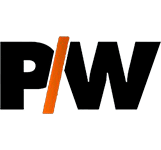Federal leaders break down CARES Act
As Congress voted to approve the $2 trillion CARES Act on Friday morning, Oregon Sens. Ron Wyden and Jeff Merkley gave a town hall update to the Portland Business Alliance about the kinds of aid included in the package and how it would be directed to Oregon businesses, taxpayers, and governments.
Sen. Wyden described the measure as an effort to put a pause on economic turmoil by offering new tools to allow businesses and individuals to pay their bills and stay afloat.
Meanwhile on Capitol Hill, U.S. Rep. Greg Walden spoke on the CARES Act prior to its passage, affirming that this will not be the last act Congress takes. He highlighted $200 million to the FCC for telehealth expansion and the importance of protecting the medical supply chain.
We will continue to dig into the finer details of the massive bill and look for opportunities to connect our clients to funding opportunities and resources it provides.
Here are a few of the items Senators Wyden and Merkley addressed:
- Businesses: More than 4,000 Oregon small businesses are eligible for loans and grants to keep staff on payroll. Employers can access the funds to cover the costs of disrupted supply chains, fewer customers, or entirely shutting down, and they’re available for those who rehire recently furloughed staff. Funds are also available to help with mortgage, rent, utilities and debt. Unemployment benefits are extended by 13 weeks for those who have been laid off.
- Health Care: The CARES Act includes $100 billion for hospitals and other health care providers that are dealing with COVID-19, but Sen. Wyden said there is more work to be done as the country is still learning about the full impact of the virus. He said he anticipates future legislation specifically addressing telemedicine and non-physician providers. Both senators urged people to send requests to their offices on unmet needs moving forward.
- Construction: Both senators spoke about the importance of keeping the construction sector moving and ensuring supply chains are maintained. Sen. Merkley said that these are critical industries and stressed that social distancing continue to be emphasized on worksites to reduce shutdowns.
- Government. The $340 billion in funding for state and local governments is broken down into a few different chunks, with the largest amount going toward coronavirus response and direct aid for state and local governments running low on cash. The Family First Coronavirus Aid Package passed last week increased federal Medicaid payments, which will help the state budget.


